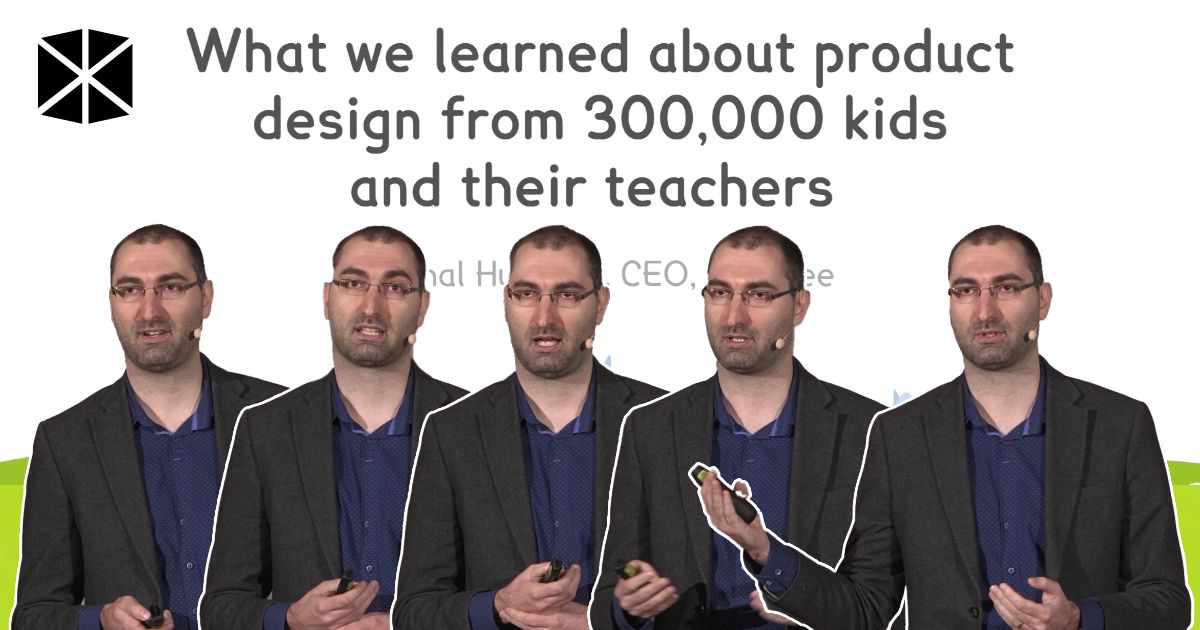
Michal Hudeček, CEO of EdTech company Levebee, joined us at WebExpo 2023 to talk about their educational app for children. With the intention of helping children, specifically with mathematics, trying to create a fun and immersive experience for the user is a key goal for success. And that same fun and light-hearted approach was on show for this presentation, too. From data and analytics, customer feedback, and business strategy, this content doesn’t need to be dry. Kinging things off with “Your app sucks!”, it sets a super casual tone for a serious topic.
Accessibility is key
One of the pivotal things that Levebee strives for is to create a user-friendly app that is accessible for every learning type. Throughout this talk, Michal shared with the live audience just how he and his team have utilised valuable feedback to create a successful business model and well-designed app to achieve their goal.
Michal explored various points in a humorous and inviting manner, guiding the audience through the various data collection and analysis tools and techniques that they used to create and improve their app.
This session comprises of an agenda that includes the following chapters:
- Angry is better than indifferent
- There is no stupid feedback
- Get feedback faster
- Find the root cause
- Say no strategically
- Accessibility (not graphics) makes fun
- Do no harm
Each of these points, as you will note from the video, hold a key to their team’s approach when it comes to reviewing the feedback that their users provided.
From the outset, it is clear that Levebee has a particularly hands-on approach when it comes to customer care; as the speaker recited numerous examples of just how they have assisted customers with very specific problems or queries.
As Michal expanded on each point, he shared in great detail how his company successfully managed to collate 70% of their feedback from one seemingly minor adjustment to their system – allowing his team to provide a fast and efficient level of customer service. To find out more details on how they achieved this, watch the video below.
Alongside the “generic feedback” stages of their approach, Michal also shared how Levebee structured the various “exercises” that make up the app. He shared specifically that they have managed to derive valuable feedback simply through implementing an 80% success rate on each of the “exercises”. By implementing this 80% it’s helped them to see if there are problems before they arise as a customer complaint. For example, if an exercise has a recurring low success rate, it might be that the exercise isn’t very clear which is something his team can then review before it becomes a problem. Michal goes into further detail on how they achieved this in his talk.
Another strategy that his team have used when making improvements, is to consolidate their workload, feedback and data into one place. Whilst his team use Asana to manage their workload, he offered examples of alternatives that companies might want to use if they were looking to take a similar approach.
One key topic that Michal covered was one that he named “Real Alternative”. In the video, he shared that part of their strategy, when reviewing the direction in which they’re heading, is comparing the alternatives to their app. Not necessarily comparing against other, or similar apps, but to the alternative before apps even existed – i.e. pen and paper. In this segment, he showed some examples of the advantages and disadvantages that they face in the development of their app, in comparison with a more traditional method. The speaker elaborated on these points further in the WebExpo presentation.
When discussing a point that Michal named, “value creation mechanism” he went into detail of how, as a business, they want to ensure that whatever they are doing and working towards, is going to add value to the consumer’s experience and the purpose of the app itself – providing entertaining educational content for children.
Michal shares that Levebee’s aim was to make sure that each user could enjoy the experience of using the app – meaning that their priority was to make it user-friendly so that each child can use the app seamlessly. One of the major factors that encouraged them to put in place the methods he mentioned in the talk.
One of the final points raised was how creating educational content has taught them they can “over gamify”, and it can be detrimental to the user experience. So in order to stay in line with their company’s KPIs they needed to evaluate this and ensure they stayed on track.
This summary here only touches the surface. Be sure to watch the video and slides to see how Levebee utilised its platform to demonstrate the importance of data collection and analysis. By collating this data, it has allowed them to locate flaws within their business model and drastically improve the app’s functionality.